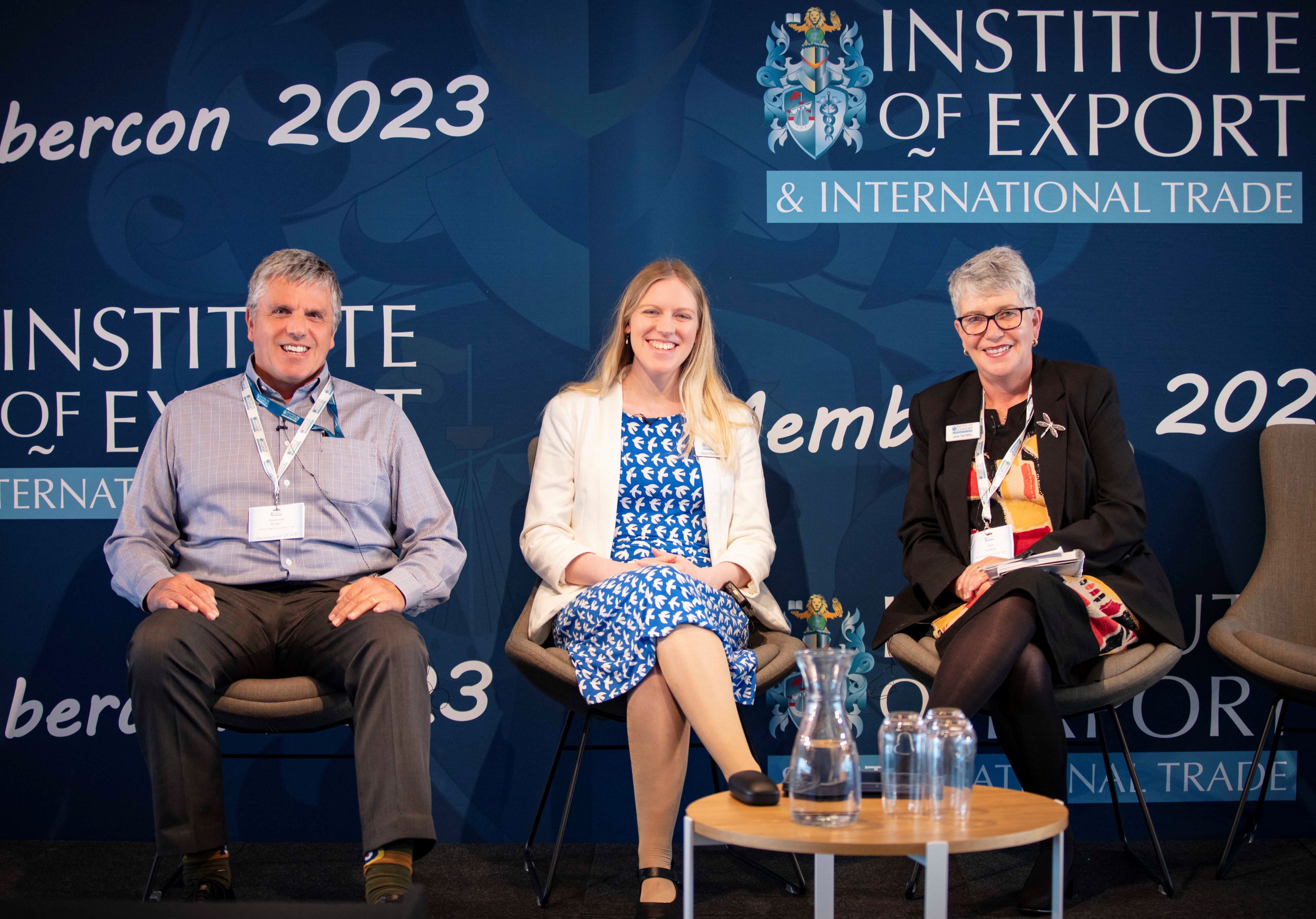
Global trade as we know it – as well as the overall volume of economic activity – is at risk from climate change.
For instance, maritime shipping, which accounts for about 80% of global trade by volume, could face a range of negative consequences from a warming planet, including more frequent port closures.
This was one of the warnings at the start of a panel session at yesterday’s (5 July) MemberCon23 event in Liverpool.
Panel discussion
The annual event was an opportunity for members of the Institute of Export & International Trade (IOE&IT) to gather and share advice, tips and information on the latest developments in importing and exporting.
The ‘Greening Supply Chains’ panel was chaired by Grace Thompson, public affairs lead at IOE&IT.
Thompson kicked the session off with some stark warnings as to why this is a subject that business leaders need to take seriously.
“Climate change is expected to decrease productivity across all sectors, due to the impact on production factors including labour, capital and land. It will ultimately result in output losses and a decrease in the volume of global trade.”
Thompson added that while the UK has signed up to work to the UN’s Sustainable Development Goals initiative and is committed under the Paris Agreement to cut national emissions by 68% by 2030, this will have implications for businesses of all sizes.
“There's a lot going on in this policy space at the moment to ensure sustainability targets are hit on time, and that businesses are compliant with new measures.
“It’s important that businesses remain competitive with regional blocks, which might be progressing further on sustainability legislation, and requiring the same from their partners.”
Also on the panel were Jane Novovic-Tait public financial management (PFM)/ESG adviser at IOE&IT, and Raymond Burgin, academy education delivery team lead at IOE&IT.
ESG reporting
Tait explained that there was a need to start to gather data on ESG reporting in particular:
“Businesses are asking the question about what ESG reporting means. This year, in January, the EU issued its corporate sustainability reporting directive. For any British business that’s part of a supply chain in the EU, you will be asked to provide ESG data.”
Tait added that the UK has led the way in terms of many of the core areas of sustainable trade, having signed up to net zero targets two years ago at COP26.
She also said that in terms of reporting for UK companies, it is most likely that the International Sustainability Standards Board will become the standard in the UK.
As Tait sees it, this is the one area of compliance that business leaders should focus on.
“ESG is like the mothership in terms of compliance,” she said.
Keeping ahead of the pack
Burgin agreed that the UK is leading the way in some of these areas:
“With the data that's being put into reports, a lot of traders are finding it challenging, because some of that information is proprietary.
“You want to protect and guard that information. There could be challenges in the future, when that data starts being compiled and reported out, around painting a picture of what a good green landscape is going to look like.”
He said that success would come from businesses looking across their entire supply chains and making clear what was expected of each individual link in the chain.
‘Changing and challenging’ landscape
Burgin also warned that the trade landscape was going to become “very challenging” in the future due to the EU’s proposed carbon border adjustment model (CBAM). The UK is itself looking at whether to launch its own such model.
“There's the potential suggestion that there will be an additional cost to the buyer and the consumer,” he said.
All the panellists said that advanced trade concepts such as the single trade window, increased digitalisation and the introduction of electronic trade documents are also likely to have a positive impact in making supply chains more sustainable.
Burgin pointed out that speeding up the time it takes to transport goods by digitalising trade processes could help to reduce “‘chugging’ time for vessels waiting in port”. This could “have a huge, positive impact on emissions,” he added.
Support needed
When Thompson invited feedback from the floor on what additional support businesses would need to make their supply chains more sustainable, several attendees brought up issues such as increased seed funding, investment in rail infrastructure and training on concepts like CBAM.
One customs broker said that he felt that it wouldn’t be possible for the industry to handle these changes without some kind of financial or training assistance from government, even though he personally felt equipped to handle it.



